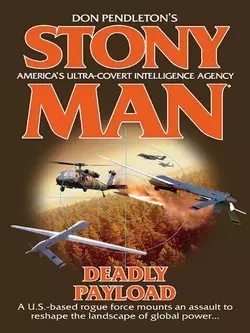Deadly Payload

Don Pendleton
Тип: электронная книга
Жанр: Шпионские детективы
Язык: на английском языке
Стоимость: 458.46 ₽
Статус: В продаже
Издательство: HarperCollins
Дата публикации: 16.04.2024
Отзывы: Пока нет Добавить отзыв
О книге: Unflinching duty and patriotism stand at the core of the covert operations group known as Stony Man. Answering only to the Oval Office, and with a mandate to strike before the world suffers, the clandestine field and cyber operatives work without a warrant and outside the law, enabling them to strike down those who obey no law.A powerful U.S.-based consortium has begun a full-scale assault to take over the world. Attacking on multiple fronts, this secret cadre has enough high-tech weaponry to push nations to an apocalyptic standoff–and now China, Russia and the Middle East are poised to unleash swift, savage and bloody nuclear retaliations. Stony Man teams are spread thin, racing to stop the unthinkable as the world is pushed over the edge of reason, and an unseen, perhaps unstoppable, enemy brings the planet seconds closer to flash point.